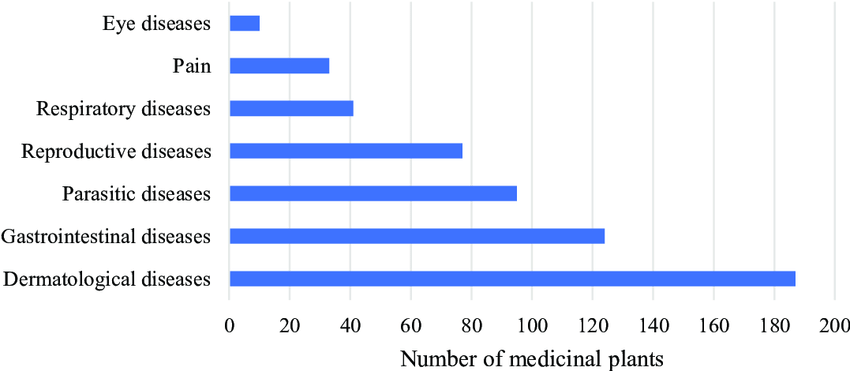Understanding Chronic Illness in Pets
Chronic illnesses in pets are defined as long-term medical conditions that often require ongoing management and can affect your pet’s quality of life. Common types of chronic diseases in pets include arthritis, diabetes, kidney disease, heart disease, and certain types of cancer.
As a responsible pet owner, you need to be vigilant about potential symptoms. These might include changes in appetite, weight loss, decreased energy, or unusual behaviours.

Regular vet check-ups are crucial for early detection and management of chronic illnesses. These check-ups help ensure your pet lives a comfortable, healthy life despite their chronic condition.
Managing a pet with a chronic illness can be challenging, but with the right understanding and care, it’s entirely possible to provide them with a high-quality life.
The Importance of Early Diagnosis in Pets
Identifying a health issue in its early stages is pivotal in managing your pet’s wellbeing. Early diagnosis can significantly enhance prognosis and treatment options, making it easier to manage the condition.
Common Diagnostic Procedures
Diagnostic procedures may include physical examinations, blood tests, imaging such as X-rays or ultrasound, and biopsies. These tests provide valuable insight into your pet’s health and aid in accurate diagnosis.

Understanding Your Pet’s Diagnosis
Once a diagnosis is made, it’s crucial to fully understand your pet’s condition. Ask your vet about the implications, progression, and management of the diagnosed condition.
Working with Your Vet to Develop a Management Plan
After understanding the diagnosis, you and your vet can formulate a management plan. This may include medication, dietary changes, or lifestyle modifications.
Treatment Options for Chronic Illness
Choosing the right treatment for your pet’s chronic illness can be a daunting task. However, understanding the options available is critical to ensuring your pet’s health and wellbeing. Common treatment options for chronic conditions include medication, lifestyle changes, surgery, or a combination of these.
Importance of Following Vet’s Treatment Plan
Following the vet’s treatment plan is paramount. Chronic illnesses require consistent management to prevent worsening conditions.
When to Consider Alternative Treatments
Alternative treatments may be considered when conventional methods aren’t effective. However, always consult your vet before making changes to the treatment regimen. Research indicates that certain alternative treatments can complement conventional treatments.
Note: It’s crucial to make informed decisions based on reliable resources and expert advice. Remember, managing a pet with a chronic illness is a long-term commitment that requires dedication and patience.
Administering Medications and Therapies to Your Pet
When managing a pet with a chronic illness, understanding both the method and importance of administering medications and therapies is crucial. Let’s explore the essential techniques, dealing with side effects, the significance of consistency, and implementing prescribed therapies.
Techniques for Giving Your Pet Medication
Administering medication to your pet can be a challenge. However, with patience and some clever techniques, it becomes manageable. Consider using a pet-friendly pill dispenser or disguising the medication in their favourite treat.
Managing Side Effects of Medication
Side effects can be a concern when your pet is on medication. Monitor them closely and consult your vet if you notice unusual behaviour.
Importance of Consistency in Administering Medication
Consistency is key in medication administration. Ensure you adhere to the prescribed routine to prevent fluctuations in your pet’s condition.
Understanding and Implementing Prescribed Therapies
Therapies complement medication in managing a pet’s chronic illness. Understand the objective of each therapy and implement them as advised by your vet.

Modifying Your Pet’s Lifestyle for Chronic Illness Management
When managing a pet with chronic illness, lifestyle modifications can play an integral role. These modifications generally fall into three main categories: dietary changes, exercise, and maintaining a stress-free environment.
Dietary Changes and Chronic Illness Management
Optimal nutrition is crucial for managing chronic illnesses in pets. Dietary changes could mean introducing a balanced diet specifically designed for your pet’s condition. This can help manage symptoms, slow disease progression, and enhance your pet’s quality of life.
The Role of Exercise in Managing Chronic Illness
Regular, appropriate exercise can help manage chronic illnesses by keeping your pet’s weight in check and boosting overall wellness. Always consult your vet to determine the right type and amount of exercise for your pet.
Creating a Stress-Free Environment
A stress-free environment is essential for any pet, particularly those with chronic illnesses. A calm, quiet space can help reduce anxiety and prevent exacerbation of symptoms.

Regular Health Monitoring for a Pet with Chronic Illness
One cannot overemphasise the importance of regular health monitoring when caring for a pet with a chronic illness. From scheduling routine veterinary visits to employing at-home monitoring techniques, your vigilance could significantly enhance your pet’s quality of life.
Consistent appointments with your vet help identify subtle changes that may indicate a progression of your pet’s condition. These check-ups also ensure that the treatment plan is effective and adjusted as necessary.
At-home monitoring techniques are equally crucial. You should observe your pet’s behaviour, eating habits, and physical activity. Any sudden changes could be a sign of distress and warrant urgent attention.
Recognising Changes and Keeping a Health Journal
Understanding and recognising changes in your pet’s behaviour or physical condition can be a lifesaver. Being acquainted with your pet’s normal behaviour will help identify any unusual patterns or symptoms.
Keeping a health journal for your pet is highly recommended. It serves as a comprehensive record of your pet’s health status, which can provide invaluable information to your vet.
Understanding Your Pet’s Emotional Needs
As a pet parent, it’s crucial to comprehend your pet’s emotional needs, especially when they’re suffering from a chronic illness. Pets, like humans, experience a range of emotions such as anxiety, stress, and fear. These feelings may be magnified when they’re unwell. Understanding your pet’s emotional state can help you provide the necessary support and make them feel loved and secure. 
Techniques for Providing Emotional Support
Emotional support can come in various forms. Regular cuddling, gentle strokes, and maintaining a calm environment can help your pet feel safe. Also, ensure your pet’s routines – like feeding and exercise – are not drastically altered.

Dealing with Behavioural Changes
Pets with chronic illnesses often exhibit behavioural changes. They may become more aggressive or withdrawn. In such instances, consult with a vet or a pet behaviourist.

Caring for Yourself as a Pet Owner
When managing the health of a pet with a chronic illness, you’re likely to face an emotional toll. It’s crucial to acknowledge this, as it can directly impact your wellbeing. It’s also important to remember that your pet’s health is linked to your own. Caregiver stress can manifest in many ways, including exhaustion and feelings of overwhelm, which can inhibit your ability to provide the best care for your pet.
Managing Caregiver Stress
Support from pet owner communities can be a lifeline when dealing with a chronically ill pet. Online forums, like PetForums.co.uk, offer a space to share experiences and advice. Additionally, it’s essential to practice self-care. Regular exercise, a balanced diet, and taking time out for yourself can help manage stress levels.
The Importance of Self-Care
Self-care is not a luxury, but a necessity when providing care for a chronically ill pet. It promotes better decision-making and fosters resilience, which are key in managing long-term pet illnesses.


